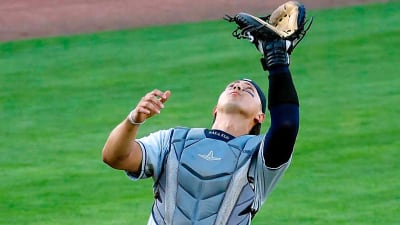
In 1999, Michael Jordan stood on stage at the Sports Illustrated Awards to accept the honor of being named Basketball Player of the Century. It was a moment befitting someone widely regarded as arguably the greatest player in NBA history, yet Jordan used his time not to proclaim his dominance, but to deflect praise toward the legends who paved the way.
"Thank you. Thank you very much. Good to be back in the Garden..."
As he stepped to the podium inside Madison Square Garden, the crowd response was mixed, with some fans even booing him, a reminder of the competitive rivalries he stirred during his career.
"I expected that as well. That means I did my job well when I came here. I would be remiss not to thank all the other recipients tonight, all the nominees. It's truly a privilege for me to be here. But when you see Michael Jordan, I'm a product of modern basketball, modern technology."
"But all the great achievements come from Oscar Robertson, Kareem Abdul-Jabbar, Wilt Chamberlain, Bill Russell, Magic Johnson, Larry Bird, Bob Cousy — all the athletes, all the basketball players way before Michael Jordan. I just got the fruit of the labor, I guess. I learned so much from these guys watching them."
"I've kind of gained more of the publicity and more of the notoriety because of me learning from what they have done years way before me. And I want to give them the proper respect and a thank you for allowing me to do my job the way I did my job. Thank you very much."
The Greatest Of All Time
— Apex Jones (@ApexJones22) August 13, 2025
Michael Jordan winning the 1999 Sports Illustrated (founded in 1954) Basketball Player of the Century Award over Wilt, Kareem, Magic, Larry, and Big O, doesn't get talked about enough.
MJ, clearly humbled and visibly shy in acceptance of the award,… pic.twitter.com/M7JzXWaePm
Instead of centering the speech solely on himself, Jordan immediately shifted focus to those who came before him. He humbly credited “modern basketball” and “modern technology” for helping him gain notoriety, but insisted that the true foundation of his success came from the greats who dominated the game long before he entered the league.
This humility was especially striking given Jordan’s own stature. By 1999, his résumé was the stuff of legend: six NBA championships, six Finals MVPs, five regular season MVPs, ten scoring titles, and two Olympic gold medals.
He had transformed the Chicago Bulls into a global powerhouse and elevated the NBA to unprecedented worldwide popularity. For many fans and analysts, his dominance, work ethic, and competitive fire had already placed him at the top of the GOAT debate.
Yet, Jordan never declared himself definitively as such, leaving room for respectful dialogue and ensuring that the contributions of other legends were not lost in the narrative.
The message was clear: greatness is not achieved in isolation, and true legacy lies not only in accolades, but in honoring the lineage of the game.
Moments like this reinforce why Michael Jordan is remembered not only for his on-court brilliance but also for his understanding of basketball’s deeper heritage.
Whether one believes he is the definitive GOAT or simply among the greatest, his 1999 speech remains a testament to the humility and respect that often accompany true greatness.
More must-reads:
- Who are the top-five European NBA talents playing at EuroBasket?
- Lakers get encouraging Luka Doncic injury update
- The 'NBA minutes leaders by season' quiz
Breaking News
Trending News
Customize Your Newsletter
 +
+
Get the latest news and rumors, customized to your favorite sports and teams. Emailed daily. Always free!








